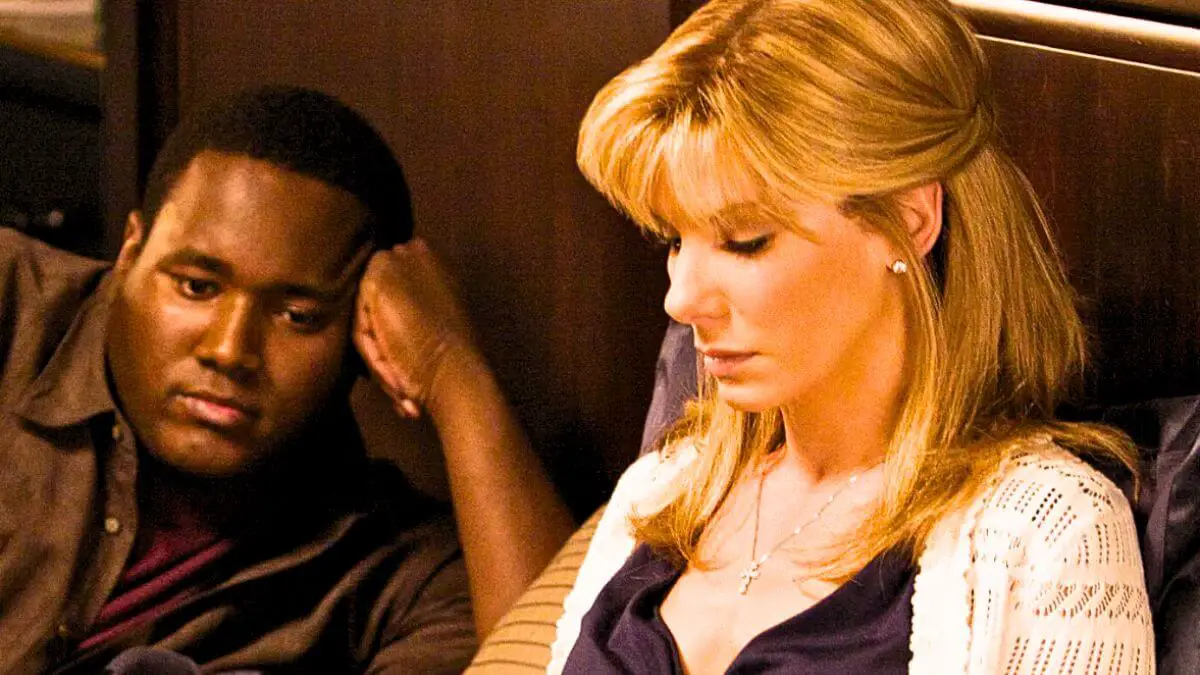Hollywood is under fire as allegations surface that the industry prefers- ‘The Blind Side’ and the troubling White Savior Trend’ and similar movie plot lines, most recently in response to the 2009 film “The Blind Side.”

The Blind Side’ and the Troubling White Savior Trend Exposed
Michael Oher, a former NFL player and the inspiration for the film, claims he was never legally adopted by the Tuohy family and was duped into a conservatorship that allowed them to profit on his name and narrative.
Experts and liberal journalists have claimed the film, which garnered Sandra Bullock an Oscar for her performance, is another example of the “White savior” trope, in which the stories of victimized minorities are often told from the perspective of “heroic” White characters.
Claudia Puig, past president of the Los Angeles Film Critics Association, told the Los Angeles Times that she was not surprised by the details of Oher’s story but was astonished that he had waited so long to come out.
The film ‘The Blind Side’ contains certain offensive White savior tropes. She thought the film was racist at worst and self-serving at best.
Puig also expressed her wish that Hollywood will steer clear of such “wince-inducing” films in the future after criticizing the industry for portraying itself as a progressive champion for minority rights while frequently silencing the views of those it claims to serve.
She explained that Hollywood’s image is to be “open-minded and liberal.” But at the helm of these productions are White folks who may not see the most offensive components of their work. Or else they don’t give a damn.”
Although recent backlash against movies like “Green Book” may have “slowed the White savior wave,” the entertainment industry “shows few signs” of completely abandoning the cliché, according to LA Times senior writer Greg Baxton.
Movies about “White saviors” are almost always made by White directors who want to criticize racism and are often influenced by real events. Many of these stories, he added, “stifle their well-intentioned messages, if not counteract them entirely, by centering White characters.”
Countless films and shows have been criticized for perpetuating this stereotype, including Lawrence of Arabia, To Kill a Mockingbird, Glory, Dances With Wolves, The Help, Avatar, Grand Canyon, Amistad, Billy Jack, A Time to Kill, Gran Torino, Hidden Figures, The White Shadow, and Game of Thrones.
When the 1997 film “Ghosts of Mississippi,” about assistant district attorney Bobby DeLaughter’s investigation into the death of civil rights icon Medgar Evers, came out, veteran film critic Tim Cogshell had some issues with it.
Alec Baldwin and Whoopi Goldberg played lead roles in the movie. Cogshell: “As a film critic, I recall thinking, ‘Somehow a movie about the murder of Medgar Evers turns up being about a White person.
Erin Ash, a professor of communications at Clemson University, has criticized the 2018 Oscar-winning film “Green Brook,” saying that it “spoon-feeds racism to White people” and has “very little that can’t be described as crude, obvious, and borderline offensive.”
After all, “we all believed we lived in this post-racial era,” Ash declared. “Green Book” demonstrated how culturally resonant stereotypes are repeated.
Even though Hollywood “may never decide to give up the White savior once and for all,” these scandals, according to Braxton, demonstrate the “potentially high price to be paid” for maintaining the status quo of producing such entertainment when “cultural mores” shift.
After claiming in February 2023 that he was deceived about the conservatorship and agreed to it assuming that it would provide him some form of familial relationship, Oher revealed in filings that he was never legally adopted by the family.
In the days that followed, new concerns were raised on both sides, with the Tuohy family vehemently denying the claims made against them, including that they exploited Oher through the conservatorship.

